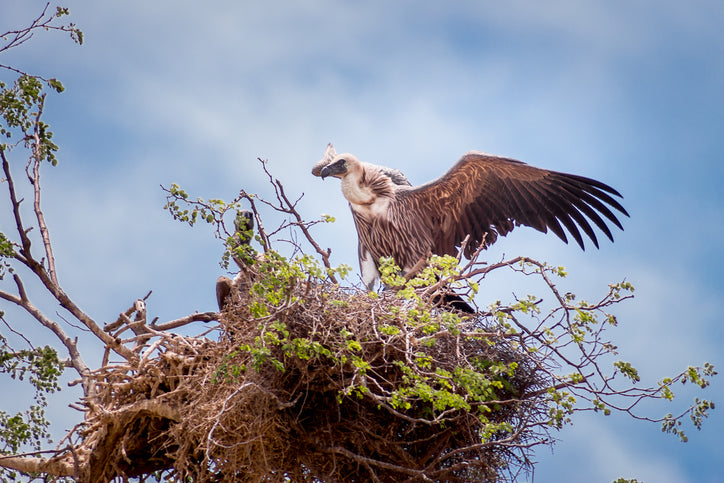
Cape Vulture
Share
The Majestic Cape Vulture of Kruger National Park 🦅
High above the stunning landscapes of Kruger National Park, the Cape Vulture circles the skies, showcasing the grandeur of Africa’s wildlife. These impressive birds, with their wide wingspans and keen eyes, are essential to the park's ecosystem. 🌍👀
Majestic Flyers: Cape Vultures are among the largest raptors in Africa, with wingspans stretching up to 2.6 meters. They are built for soaring, using thermal currents to glide effortlessly above the ground. This incredible ability allows them to conserve energy during their long flights in search of food. 🌬️🦅
Vital Role in Nature: These vultures are nature’s cleanup crew. They primarily feed on carrion and can consume toxins harmful to other animals without ill effects, thus preventing diseases from spreading through decaying carcasses. Their stomach acid is remarkably corrosive, allowing them to safely digest rotting meat that would be lethal to other creatures. 🍖🚫
A Social Bird: Cape Vultures are highly social and are often seen in large groups, especially near carcasses or at roosting sites. They use communal roosts and nesting sites called 'vulture restaurants'—areas where park managers provide safe food sources to support their populations. 🍽️🐦
Conservation Challenges: Despite their resilience, Cape Vultures face significant threats from habitat loss, poisoning, and collisions with electrical infrastructure. Conservationists in Kruger National Park work diligently to safeguard these birds through monitoring programs and by ensuring their habitats are protected and maintained. 🛡️🌿
Fun Fact for Kids: Did you know that Cape Vultures can spot a carcass from up to several kilometers away? Their excellent vision is their superpower, helping them find food across vast distances! 🔭👁️
Engage and Learn: As you colour in the Cape Vulture on your Kruger Park roll, imagine it soaring high above you. This bird's life in the skies is as fascinating as it is vital. By learning about and appreciating these vultures, we can help ensure they remain a part of Africa’s wild heritage. 🎨📚